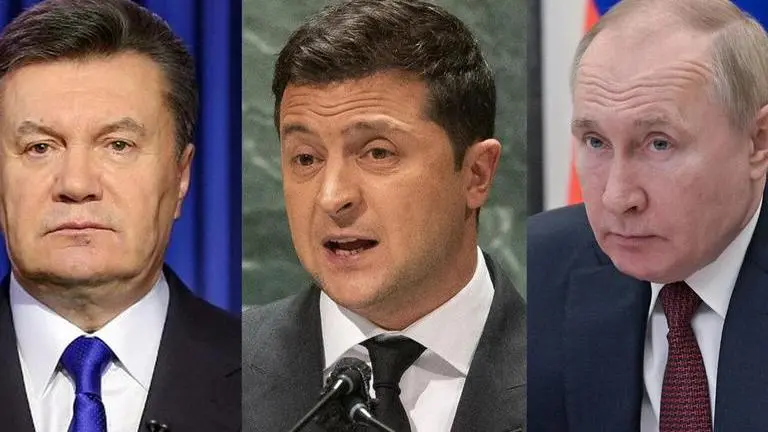Updated 15:21 IST, March 8th 2022
Ex-Ukraine President Yanukovych asks Zelensky to 'overcome pride' and stop war with Russia
Viktor Yanukovych, the exiled former President is perceived as becoming the Kremlin's first choice to lead Ukraine after Russia's invasion of the country.

Amid the intensified Russia-Ukraine war and amounting to a major setback for Ukrainian forces, on Tuesday, March 8, Ukraine's former President Viktor Yanukovych urged incumbent President Volodymyr Zelensky to call off the resistance and stop combatting foreign troops. Diluting the Kremlin-led full-fledged invasion of Ukraine, the ousted Head of State of Ukraine concluded that the ongoing military crisis is merely a conflict of 'pride'.
In a letter published in Kyiv Independent and addressed to Zelensky, it was brought to the fore that Yanukovych has asked the Ukrainian President to 'overcome his pride' and stop the war at any cost.
The exiled former Ukrainian President is perceived as becoming the Kremlin's first choice after the invasion of Ukraine. On March 2, Kyiv Independent shared on Twitter, "Putin wants to reinstate Yanukovych as president of Ukraine. Viktor Yanukovych is allegedly in Minsk, and the Kremlin is preparing an operation to replace Zelensky with the ex-president ousted by the EuroMaidan Revolution in 2014, according to Ukrainska Pravda’s sources."
Who is Viktor Yanukovych? Why was ex-Ukraine President impeached?
The fugitive former Ukrainian leader fled to Russia in 2014 after having served as the Head of State until the Maidan Revolution in 2010 when he was impeached. The episode refers to a battery of clashes and assaults, involving protestors who backed ties with NATO, as initiated in 2008. However, in 2010, then Ukraine President Yanukovych shelved the intention to align with NATO and retained the country's non-alignment status. The withdrawal had caused uprisings and civil unrest across the eastern European nation in what came to be known as the Maidan Revolution.
Regarded as a close associate of Vladimir Putin, Russia backed the Yanukovych-led government for turning down the political and trade integration with the European Union, while US and EU supported thousands of protestors. Anti-government protests that prolonged for months and recorded deaths of at least 88 persons by professional military snipers ultimately toppled President Yanukovych's government, thus leading to Russia invading Crimea in March 2014.
Subsequently, in November 2014, the Ukrainian military reported an 'intensive' movement of Russian troops into the parts of Eastern Ukraine.
Published 15:21 IST, March 8th 2022
